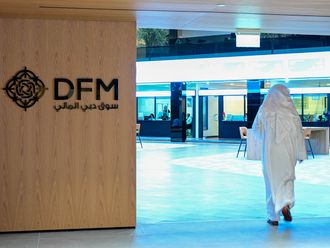In 2010, the then Iraqi minister of oil and later deputy prime minister for energy affairs, Hussain Shahristani, was called before parliament to speak about the petroleum products situation in the country where shortages were observed. The refineries were hardly working at 70 per cent of capacity and the country was importing close to a 100,000 barrels a day of light petroleum products.
Shahristani got away with the questioning and announced that his Ministry is working to build four refineries at the same time. Sure enough the plan came up to build the four with a combined capacity 740,000 barrels a day. No one knew at the time on what basis the sites were selected or the feasibility studies behind them.
This came later when the Ministry spent about $226 million (Dh829 million) on studies and front-end engineering and designs. But Iraq made these projects available for private investment and gave a discount on crude oil of 5 per cent or a maximum of $8 a barrel in addition to other incentives — but without attracting much interest.
However, in 2013, a Swiss company by the name of Satarem signed a memorandum of understanding in the presence of the Prime Minister Nouri Al Maliki and the Minister of Oil Kareem Luaibi to build the 150,000 barrels a day Maissan refinery and undertook to invest $6.5 billion. There was an evident lack of involvement by the Ministry of Oil in this deal.
Warnings
The Chairman of Satarem, who owns a satellite channel in Lebanon, said on television that it was the first time he was meeting the Minister.
The said company turned out to be just a postal address in Switzerland. An Iraqi living in the same city where the company is registered conducted a thorough investigation to show its size, activity and inexperience in refining. In spite of so many warnings by columnists, analysts and parliamentarians, including the Parliament Integrity Commission, the Ministry issued in December 2013 a statement in defence of the MoU claiming that the company assured them of its financing and contracting associates.
And that within the four month validity of the MoU, Satarem would register the refining company and declare its agreement with financiers and specialised contractors.
The Maissan International Refinery Company could show no evidence of a financing bank or a construction contract. No one knows how the four-month grace period has been extended to this day.
In the absence of a satisfactory explanation by the Ministry of Oil, the rumour mill is rife and there are allegations that the refinery site may have been turned to MIRC officially.
Selection process
It is said that the CEO of Satarem, Jérome Friler, had been convicted by a court of law for previous business dealings. Therefore, it is obvious that Iraq in this case did not have a clear and stringent selection process for its investors and there was no transparency in a deal which is supposed to be such importance.
Lacking investors for the other refineries, the Ministry went ahead in January 2014 and signed a contract with some engineering contractors to build the 140,000 barrels a day Karbala refinery and allocated money to the project from its own budget.
The refinery is said to be in line for completion by the end of 2018 and at a cost of $6.5 billion, which is about 40 per cent higher than comparative projects in the region. More importantly, there is not much progress on site in spite of the lapse of almost 21 months since the contract was signed.
To top up the misery of the refining industry, the Baiji refinery of 300,000 barrels a day has been turned into a battleground between Daesh and the government forces. It is as if the two sides have agreed to cooperate in the destruction of that great plant.
Future repair
Recent reports indicate that after the latest battle and the refinery supposedly liberated, the looting of offices, staff housing, machinery and equipment from the refinery proper is going on unabated by the government affiliated militias without a word from the Ministry. Such behaviour will make any future repair more difficult, time consuming and expensive.
The Ministry is not doing much to bring up the refineries to full capacity or to modernise them to produce environmentally acceptable products.
With such shady deals, lack of progress on construction contracts and continued haemorrhaging of resources by spending on imports, there is more pain on the horizon for petroleum products consumers.
Especially when the authorities are chasing a pie in the sky.
The writer is former head of the Energy Studies Department at the Opec Secretariat in Vienna.











